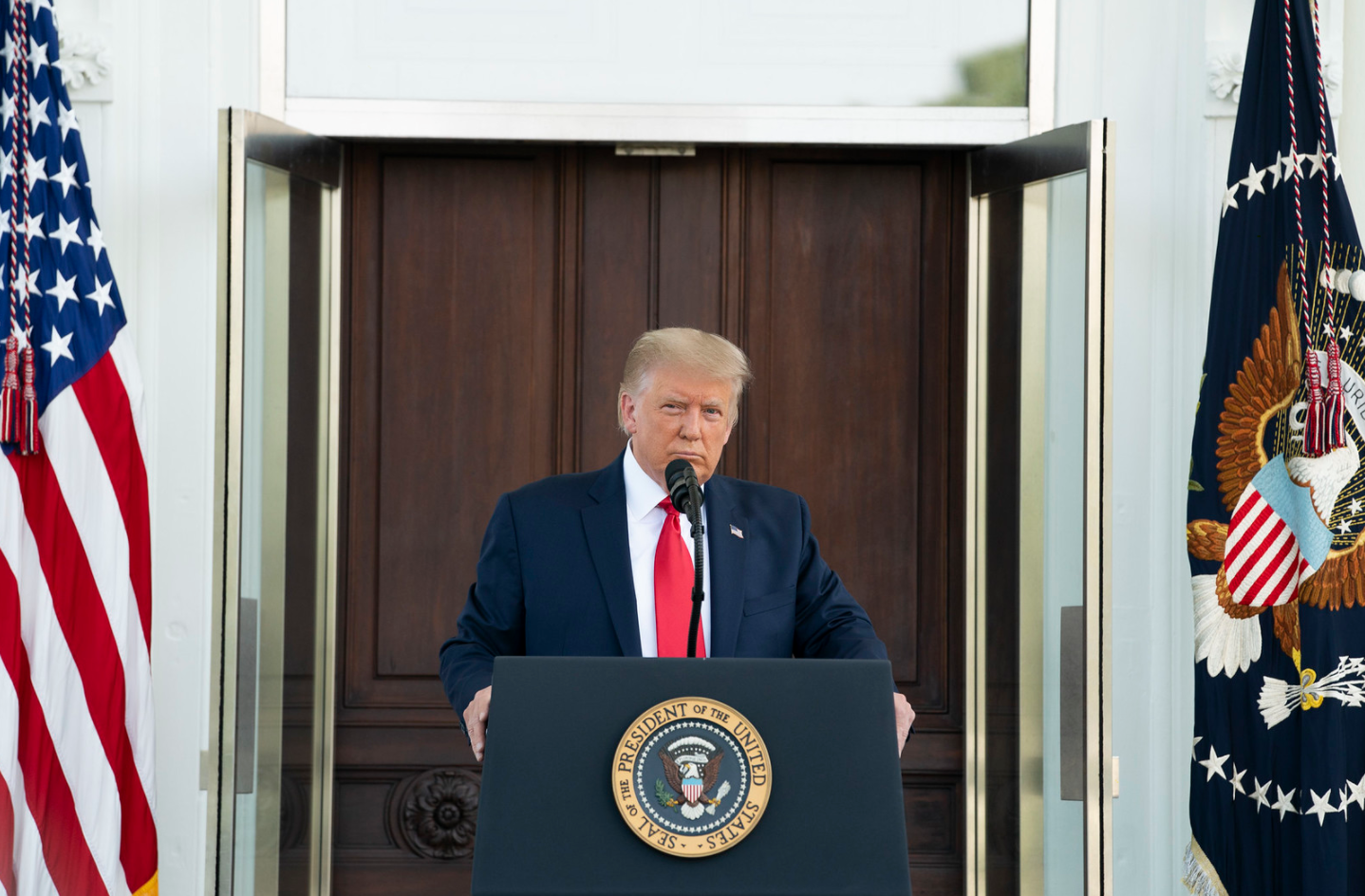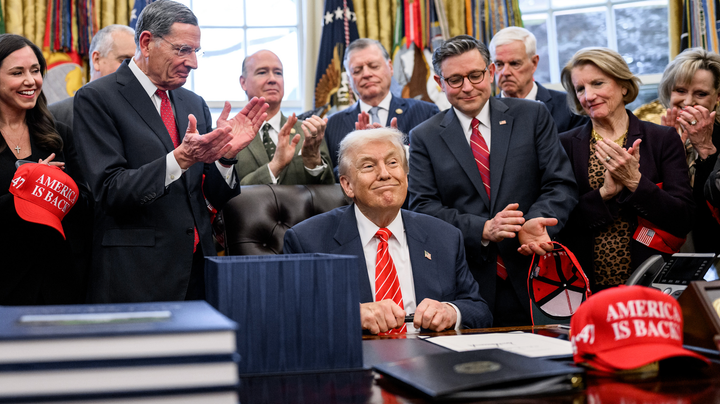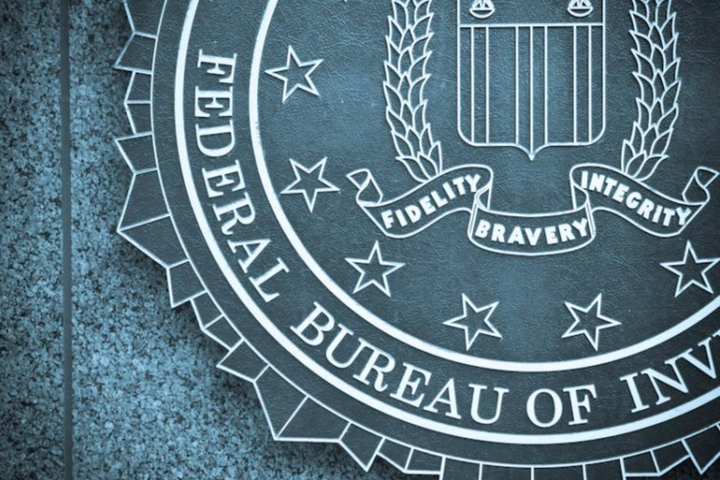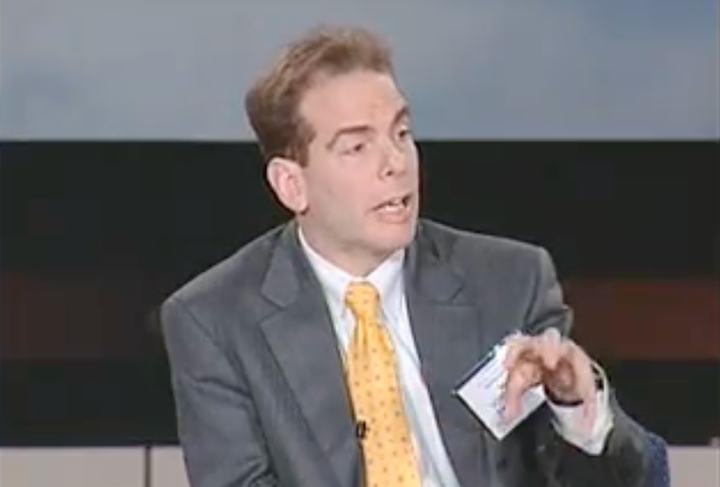Trump's 'War On Journalism' Takes Center Stage At Julian Assange's Extradition Hearing
On Day 3, the court heard from Trevor Timm, the executive director of the Freedom of the Press Foundation

In the last half-century, journalists James Bamford, Ben Bradlee, Seymour Hersh, and Neil Sheehan were each threatened with prosecution under the Espionage Act. But the U.S. government never followed through with Espionage Act charges against a journalist until 2019, when WikiLeaks founder Julian Assange was arrested and charged.
Trevor Timm, the executive director for the Freedom of the Press Foundation (FPF), told a magistrate court judge, "[President Donald] Trump's administration is moving to explicitly criminalize national security journalism, and if this prosecution is allowed to go forward, dozens of reporters at the New York Times, Washington Post and elsewhere would also be in danger."
FPF is a nonprofit organization that Timm said "protects, defends, and empowers public interest journalism in the 21st century." It developed SecureDrop, an "open-source platform for secure communications between sources and media organizations."
WikiLeaks, as Timm noted, is widely recognized as a "pioneer" of this kind of "secure submission system for journalistic sources." The system that FPF developed is available in 10 languages. "More than 70 media organizations worldwide, including the New York Times, Wall Street Journal, Associated Press, USA Today, Bloomberg News, CBC, and the Toronto Globe and Mail" are using the system to "solicit" or accept leaked documents.
The International Consortium of Investigative Journalists (ICIJ), which published the "Panama Papers" investigation, has a page on their website that says, "Leak to us." Dropboxes for leaks are even advertised by news organizations on social media platforms.
It is these common newsgathering practices that the United States Justice Department's prosecution of Assange explicitly criminalizes. However, James Lewis of the Crown Prosecution Service, who represents the U.S. government, attempted to undercut testimony from Timm.
Lewis stated it was the prosecution's position that Assange is "not a journalist." Timm acknowledged this position but maintained "it doesn’t matter whether the U.S. government considers Assange a journalist." The New York Times does not need an "issued press pass to have First Amendment rights." Plus, it is beside the point whether Assange is a journalist because he "engaged in First Amendment activities."
Timm refused to accept the prosecution's argument that the indictment against Assange is carefully tailored to only criminalize the publication of documents that contained the names of informants working for the U.S. government.
Three of the charges deal specifically with U.S. diplomatic cables that allegedly endangered informants. But other charges relate to all documents and assert that Assange's possession of the documents was a crime. If Assange committed a crime, so have other journalists, Timm added.
Lewis asked Timm if a "responsible journalist" or in fact any journalist would publish the name of a third party when it was unnecessary to publish that name and when publishing that name would put that person's life in danger.
Prior witnesses at least partly agreed with Lewis' point. However, Timm astutely declared that the "idea of who is or is not a responsible journalist is different from what is illegal or legal conduct." No U.S. court has ever said such publication would be illegal.
Back in 2010, as documented by Wired Magazine, Senator Joseph Lieberman and other lawmakers "introduced legislation that would make it a federal crime for anyone to publish the name of a U.S. intelligence source." It was a response to WikiLeaks.
Timm recalled Congress debated the legislation—the Securing Human Intelligence and Enforcing Lawful Dissemination (SHIELD) Act—which would have amended the Espionage Act. Yet, the bill never became law so apparently Congress did not think it was necessary to make the publication of intelligence sources by anyone illegal.
Lewis referred to an editorial by former media partners of WikiLeaks that condemned the media organization for publishing over the entire cache of uncensored U.S. diplomatic cables. Although WikiLeaks was not responsible for leaking the password that led to the decryption of a file that contained the cache, the Guardian, New York Times, El Pais, Der Spiegel, and Le Monde, along with other human rights organizations, were appalled at WikiLeaks for supposedly endangering lives.
Timm maintained the U.S. government should not be in the business of determining which newspapers or media organizations exercise sound editorial judgment or not. The question should be whether what WikiLeaks did in publishing those cables was illegal, and it was not.
Furthermore, Timm called the prosecutor's attention to the fact that former media partners, which were upset with WikiLeaks, are opposed to the prosecution of Assange.
In Timm's statement to the court, he highlighted how Trump has "attempted to stifle press freedom at all levels." The U.S. Press Freedom Tracker, which FPF uses to track press freedom violations in the U.S., has tallied over 2,000 examples, where Trump tweeted "negative remarks, insults, or threats to the press" since his presidential campaign in 2016. He has referred to journalists as "enemies of the people."
The strong testimony of Timm in defense of press freedom and the First Amendment was hard for Lewis to undermine. So, he asked, "Why should your opinion be preferred over the opinion of courts in the United States?"
"My opinion is in line with previous court opinions," Timm answered. "There's never been a publisher charged in this manner before," and, "Supreme Court precedent is almost wholly on the side of Mr. Assange in this case."
There are guidelines known as the federal rules of prosecution that Justice Department employees are expected to follow. Lewis absurdly cited these rules as evidence that the Assange prosecution could not be a part of a "war on journalism."
If the decision to prosecute Assange was part of a "war on journalism," Lewis added, wouldn't prosecutors in this case be acting contrary to federal rules of prosecution?
"Yes," Timm answered, "and if they did breach those obligations," one should hope there would be accountability.




Comments ()